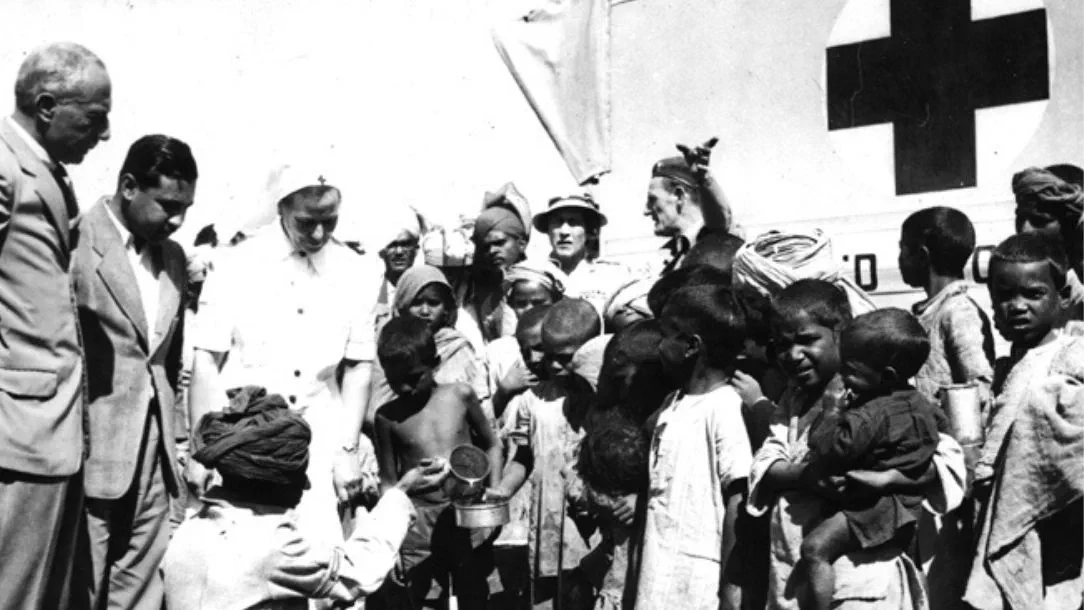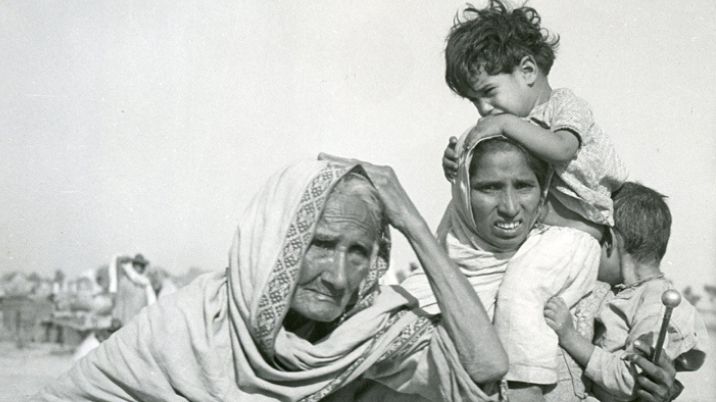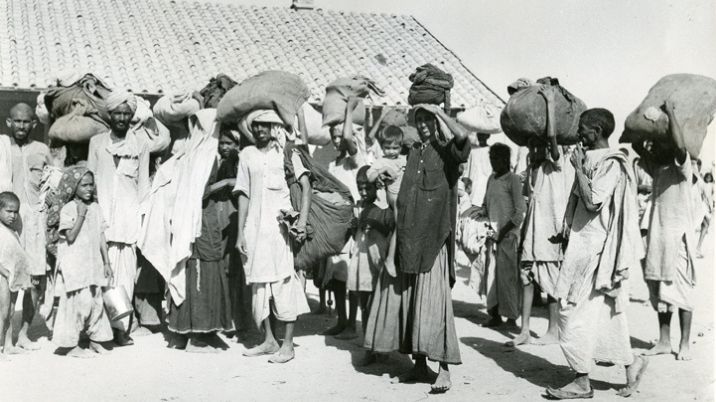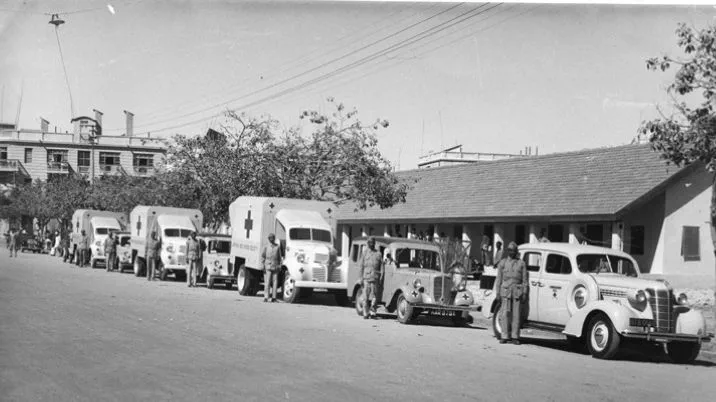India partition: the Red Cross response to the refugee crisis
This August marks 75 years since the partition of India, which triggered one of the largest population movements in history. This is how the British Red Cross responded to the crisis

Milk is distributed to children at a refugee camp in Multan, Pakistan
Last updated 16 June 2023
The partition of India and subsequent creation of Pakistan came after years of campaigning for Indian independence from British rule.
Mahatma Gandhi, Jawaharlal Nehru, who would become India's first prime minister, and Muhammed Ali Jinnah, the first governor general of Pakistan, lobbied and protested tirelessly along with countless others for the sovereignty independence offered.
The Indian Independence Act, passed by the UK Parliament in July 1947, set out the sovereign dominions of India and Pakistan – a nation of two halves with East Pakistan later becoming Bangladesh.
Partition was controversial: some prominent figures were strongly opposed to it, while others favoured separation between Muslim- and Hindu-majority areas.
Ultimately, the states were divided along religious lines, setting about mass migration as Hindus moved to India, and Muslims to West and East Pakistan.

An elderly woman arrives at the Wagah refugee camp along with her daughter and grandchild.
Separation and violence
South Asia has a long history of cultural, religious and spiritual co-existence dating back centuries. Indian art and architecture often shows a blend of Islamic, Hindu, and other influences.
However, partition drew a hurried border between India and Pakistan triggering mass religious migration.
Millions of people suddenly found themselves miles from their supposed new homeland.
The sudden separation also resulted in communal violence across the Indian sub-continent with massacres reported on both sides.
At least 14 million people were displaced and as many as one million were killed in the violence.

Refugees arriving at the Walton refugee camp, Lahore
The regions of Kashmir and Punjab were worst affected by partition and these areas remain a deep source of tension today.
The refugee crisis was exacerbated by monsoon flooding, which destroyed much of that year's harvest.
Cholera, dysentery, malaria, plague, small-pox, typhoid and typhus were all widespread, adding to the suffering.
Refugee camps were established across the Indian sub-continent with the largest emerging in Lahore and Delhi.
Help across borders
The British Red Cross was working throughout South Asia long before 1947.
As violence spread across the Indian sub-continent, the Red Cross received requests for medical assistance and equipment from both India and Pakistan.
The Pakistan government sought nurses and doctors for field hospitals, while the Indian government, through the Indian Red Cross, appealed for medical supplies and other emergency items.
Both countries asked the Red Cross for immediate supplies of blood, plasma and sulpha drugs to combat cholera and dysentery epidemics, as well as penicillin for septic conditions and vitamins for malnutrition.
While remaining neutral and independent, the Red Cross did what it could to ease the suffering of the millions of refugees across both countries.
The British Red Cross spent £20,000 of its own funds: the equivalent of around £500,000 today – to supply the requested items and divided them up equally between the two countries.
A Red Cross hospital was established in Lahore with a 400-bed capacity.
At the same time, £25,000 – the equivalent of around £700,000 today – was donated to the Indian Red Cross, along with 12 ambulances and other medical equipment.
In the UK, the Red Cross initiated a drive to recruit medical and administrative staff, giving priority to those who had already served in India with experience of the customs, people and languages.

Ambulances donated by the British Red Cross following the partition of India.
75 years later
The British Red Cross was present in the region prior to partition, and continues to work across South Asia.
Recent examples of our disaster response work include the Nepal earthquake of 2015, and the Boxing Day Tsunami of 2004.
The Red Cross is also working with the Pakistan Red Crescent, supporting them to prepare for and respond to the myriad of disasters the country faces, with a particular focus on using cash distributions.
In Bangladesh, we support the Red Crescent to help around 250,000 people to cope better during emergencies.
While the methods of delivering aid have changed over time, the Red Cross’ fundamental principles ensure we can continue to help those in need, regardless of their religious or political affiliations.
Help us support refugees
Refugees have experienced the worst challenges in life – but together, we can show the very best of humankind. Please donate if you can and help us continue our support, in the UK and around the world.
DONATE